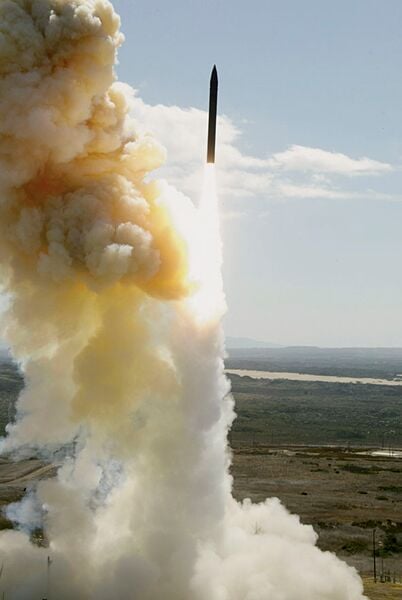- About
- Intara
- Capabilities
- Advisory
- Resources
- News
- Store
Ukraine conflict: Authorities crackdown on anti-war protests in Russia
07 March 2022
Daily anti-war protests have taken place across Russia since military forces invaded Ukraine on 24 February. According to the independent monitor OVD-Info, more than 13,000 people have been detained in 147 cities as of 7 March.
Reacting to the growing discontent, the Russian Duma passed amendments to the Criminal Code on 4 March, stating that the citizens will face fines or 15 years in prison for spreading ‘fake news', calling for sanctions, or who “discredit” Russia's armed forces.
Following the announcement, more than 40 anti-war activists had their homes searched in the cities of Pskov, Saint Petersburg, and Vladimir. According to Russian social media posts following the amendment, police also started to stop people in the streets to check the content of their mobile phones, looking for connections to the protests. Despite the measures, protests have continued.
Police detained approximately 5,000 participants in anti-war protests across the country on 6 March. Russian state-owned news outlet Ria Novosti reported that 1,700 people were detained in Moscow alone, however the anti-war rallies took place in 69 cities, including Irkutsk, Kemerovo, Khabarovsk, Krasnoyarsk, Novosibirsk, Omsk, Saint Petersburg, Tomsk, Vladivostok, and Yekaterinburg. The geographic spread of the protests illustrates that anti-war sentiment is not concentrated only in major cities or those close to the borders with Ukraine.
The protests were peaceful, however, according to OVD-Info, at least 30 protesters were beaten by security forces. Videos and audio, shared on Russian channels on Telegram, showed police personnel beating the protesters in the streets and torturing them in the police stations.
According to multiple reports from Russia-based Telegram channels, those detained in Brateevo police station in Moscow on 7 March were hit in the face and head with bottles, kicked in the legs and stomach, dragged by their hair and sprayed with sanitizer in their faces. Two people were hospitalised to the Critical Care Toxicological department after being detained by police in Moscow.
In Saint Petersburg, some of the detained were held for 24 hours in police stations without food or water and deprived of sleep. In some police stations detainees were denied visits from lawyers.
Some of the protesters are already being fined. Fines of RUB30,000–60,000 (USD215-430, with exchange rates as of 7 March) can be higher than a monthly family income in the locations where those fines were given. Fines have been handed to protesters and to whoever authorities find ‘promotes' the ‘anti-war' rhetoric, including posting anything against the ‘special operation' on social media. For example, in Krasnoyarsk a woman was brought to court on 6 March for writing ‘no to war' in the snow.
According to OVD-Info, as of 6 March, there have been 25 people who have had criminal cases opened against them for participating in the activities against the ‘special operation'; they are threatened with jail terms for up to 15 years.
Significance
The majority of those protesting on the streets appear to be younger members of the population, aged in their 20s or 30s, likely reflecting that they have no memory or experience of Soviet-era repression and that they have access to alternative non-state media coverage of the war. It is highly likely that the Russian government will continue the detentions of protesters and look to create a number of ‘exemplary' cases, jailing citizens for promotion of an anti-war narrative. Human rights violations are expected to continue and increase while the government is taking measures to silence the population.
Lockheed Martin snags multibillion-dollar NGI contract
16 April 2024
by Meredith Roaten


The Ground-Based Interceptor was launched from Vandenberg Air Force Base in California to simulate a combat launch from Fort Greely in Alaska. (Missile Defense Agency)
The Next Generation Interceptor (NGI) competition has come to an end as Lockheed Martin was selected as the prime to continue development of the weapon through critical design review (CDR), all-up round qualification, integration with the Ground-Based Midcourse Defense (GMD) system, and flight testing, the US Missile Defense Agency (MDA) announced on 15 April.
USMC plans to buy high-power ULTV variant
11 April 2024
by Aaron Lin


A marine programs a counter-unmanned aircraft system on a Light Marine Air Defense Integrated System (LMADIS) during a predeployment training exercise at Marine Corps Air Ground Combat Center, Twentynine Palms, California. (US Marine Corps)
The Ultra Light Tactical Vehicle (ULTV) programme – a US Marine Corps (USMC) replacement for the ageing Utility Task Vehicle (UTV) – will now include a variant with more exportable power, according to Janes analysis of budget documents.
Feature: Arctic formations taking shape in US Army
02 April 2024
by Meredith Roaten


A convoy of Cold Weather All-Terrain Vehicles perform command-and-control operations for the Joint Pacific Multinational Readiness Center training rotation in Fort Greely, Alaska. (Janes/Meredith Roaten)
Life in the Arctic can shift from -40ºF with 20 to 30 mph winds one week to the snow melting away as temperatures climb closer to 40ºF every day the next week. This kind of chaos makes the Joint Pacific Multinational Readiness Center (JPMRC) 24-02 training rotation an excellent trial for new US Army equipment and operations in contested environments, top service officials told Janes .
Daily anti-war protests have taken place across Russia since military forces invaded Ukraine on 24 F...
Latest Podcasts
A focus on Libya
In this podcast Janes senior analyst James Trigg, joins Harry Kemsley and Sean Corbett to discuss Libya. Historic civil and political unrest have made it a country of interest globally for decades. Whilst other conflicts and world events have fo...
Listen nowJanes Case Studies
Using Janes Intara to build a common intelligence picture: Russian build up on the Ukrainian border
View Case StudyNews Categories
 Security Details
Security Details